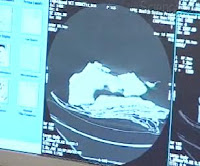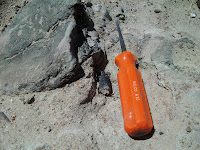Lessons For My Past Self
With over a combined decade of graduate school, a post-doc, and a big-girl job under my belt now, I've been thinking about what I would have said to my past self at the outset. The following ten guidelines are the result of countless noob moves, several dozen dark days, lots of good times, helpful advice, and everything in between. Not sure if it's helpful, but in the spirit of guideline #10, I'm trying to Pay It Forward. Without further adieu... Pace Yourself You're at the start of what could be a multi-decade career. Right now, everything feels critically important. And while it's good to take things seriously, it's also good to use this time to form habits and boundaries that will serve you in the long run. Keeping healthy, both physically and mentally, is part of a successful career. I say this, not to add extra pressure, but to give you permission to do the things that matter to your holistic well-being, regardless of any outside criticism or judgmen...



